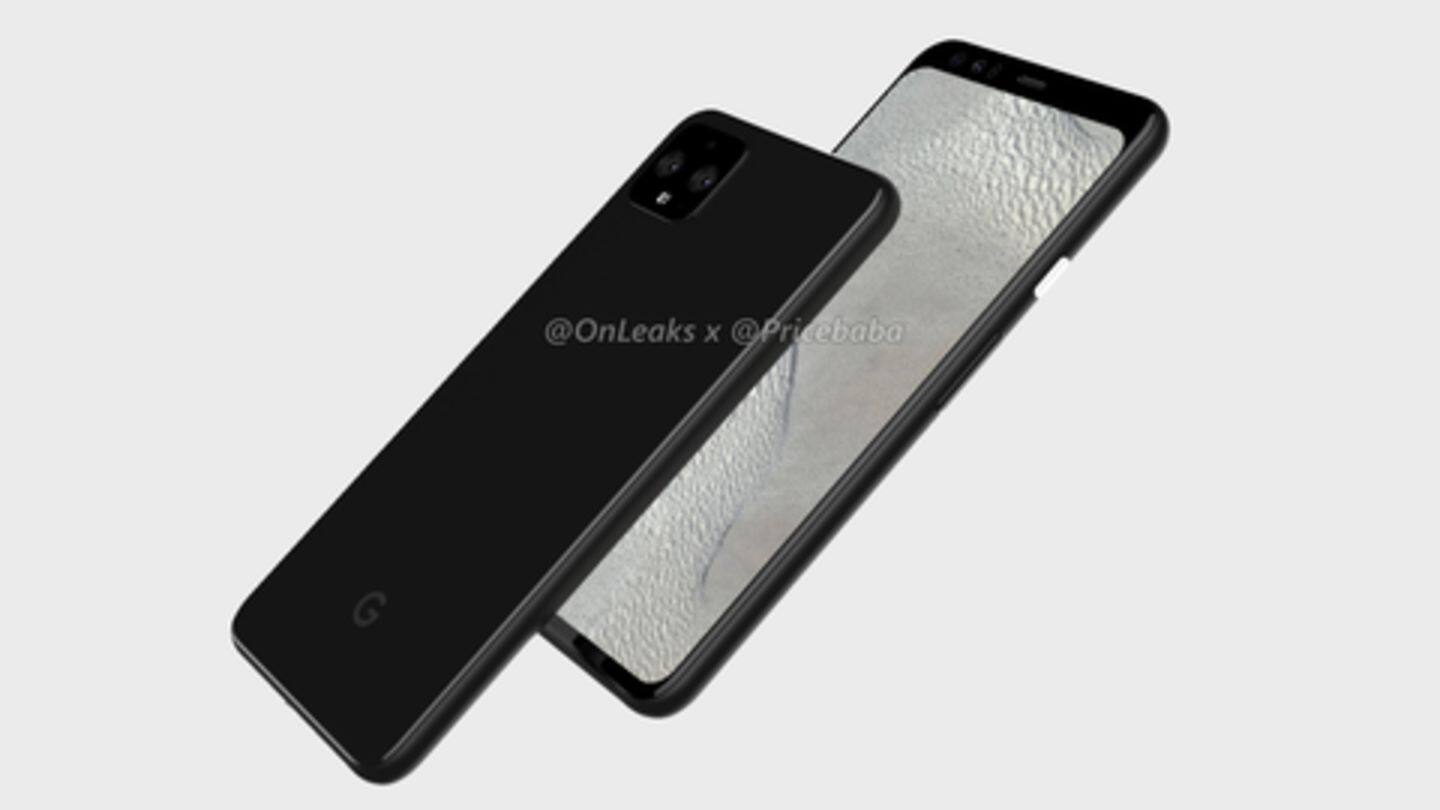
This is our first look at Google's Pixel 4 XL
What's the story
Thanks to Google, we have already seen the rear of the upcoming Pixel 4. And now, courtesy tipster @OnLeaks, we know how the front side of the Pixel 4 XL model will look like.
The latest renders reveal an all-new design language wherein the tech giant would jettison the rather ugly notch and replace it with a larger bezel.
Here's all about it.
Design
Google Pixel 4 XL to get a new "forehead" design
Going by the renders, Pixel 4 XL will feature a thick top bezel to house dual front-facing cameras, earpiece speaker for calls, and other gadgetry. However, the "forehead" design looks asymmetric, given other three bezels are pushed to the edges.
The physical fingerprint scanner is also missing, suggesting the Pixel 4 series might debut an in-display fingerprint sensor or a Face ID like setup.
Speculations
But what about the dual front-facing speakers?
A forehead design means Google will be able to stretch the display to the edges, shrinking the bottom bezel to near zero.
But what about the dual front-facing speakers that Pixel users have appreciated over the years?
With this new design, Google will possibly house one of the speakers in the earpiece while the other will be packed in the bottom edge.
Main camera
Pixel 4 XL will also sport a triple lens rear-camera
Google has been fairly consistent with its first three Pixel phones, offering a single rear camera and a glossy+matte glass back.
But on Pixel 4 series, the company would replace that look with a clean monochrome glass back and a triple rear camera setup.
The camera array is tipped to feature a standard lens, a 16MP telephoto lens, and another ToF or spectral/flicker sensor.
Certainties
Everything else we know about Pixel 4 series
Meanwhile, like other flagships of 2019, the upcoming Pixel 4 series will be powered by the flagship Qualcomm Snapdragon 855 chipset.
Further, we expect to see upto 8GB RAM, upto 256GB of storage, QHD+ AMOLED displays, Active Edge sensors, and bigger batteries.
On the software side, the upcoming flagships will feature the improved Google Assistant and the latest Android Q operating system.